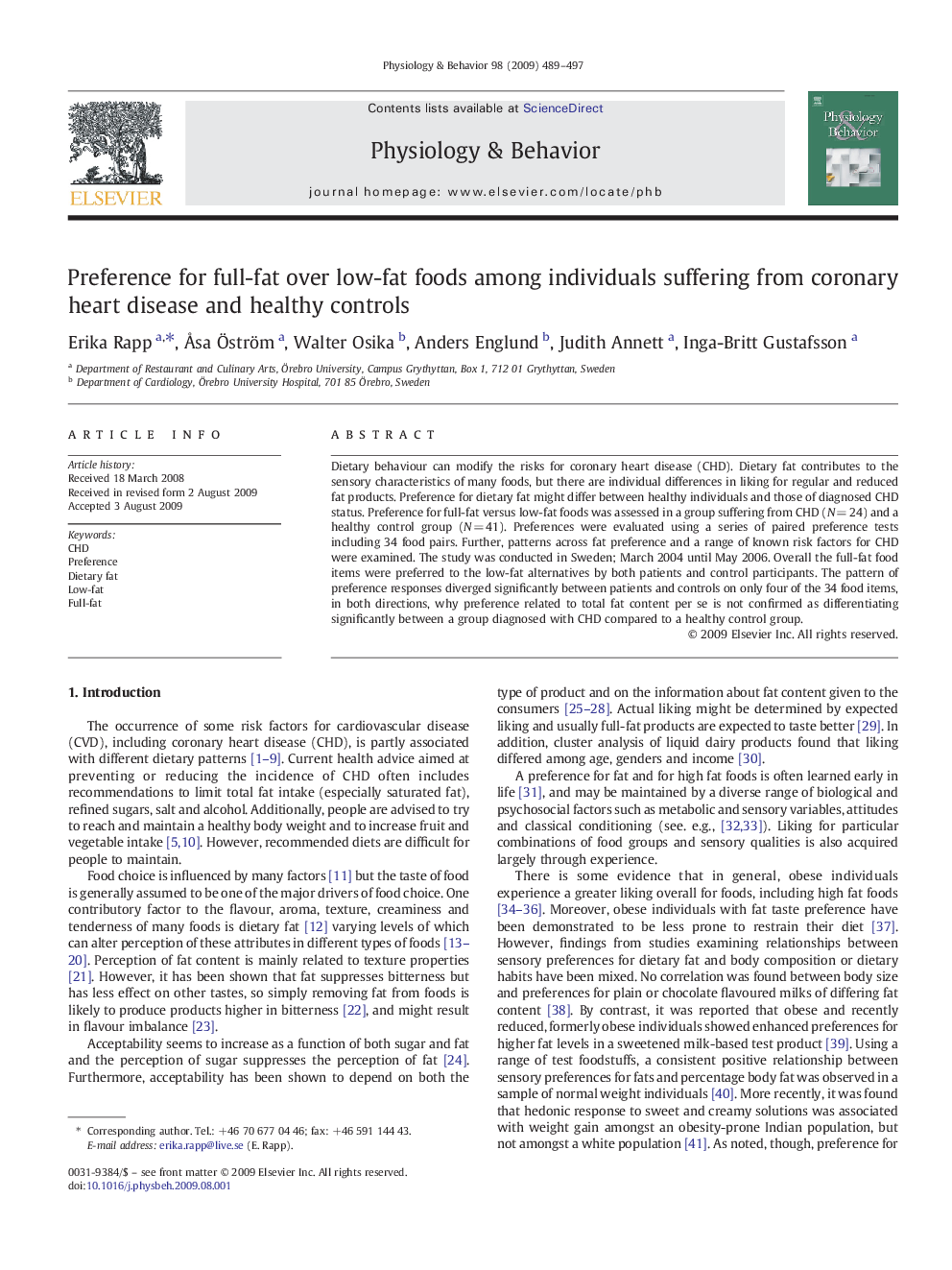| Article ID | Journal | Published Year | Pages | File Type |
|---|---|---|---|---|
| 2845154 | Physiology & Behavior | 2009 | 9 Pages |
Dietary behaviour can modify the risks for coronary heart disease (CHD). Dietary fat contributes to the sensory characteristics of many foods, but there are individual differences in liking for regular and reduced fat products. Preference for dietary fat might differ between healthy individuals and those of diagnosed CHD status. Preference for full-fat versus low-fat foods was assessed in a group suffering from CHD (N = 24) and a healthy control group (N = 41). Preferences were evaluated using a series of paired preference tests including 34 food pairs. Further, patterns across fat preference and a range of known risk factors for CHD were examined. The study was conducted in Sweden; March 2004 until May 2006. Overall the full-fat food items were preferred to the low-fat alternatives by both patients and control participants. The pattern of preference responses diverged significantly between patients and controls on only four of the 34 food items, in both directions, why preference related to total fat content per se is not confirmed as differentiating significantly between a group diagnosed with CHD compared to a healthy control group.
